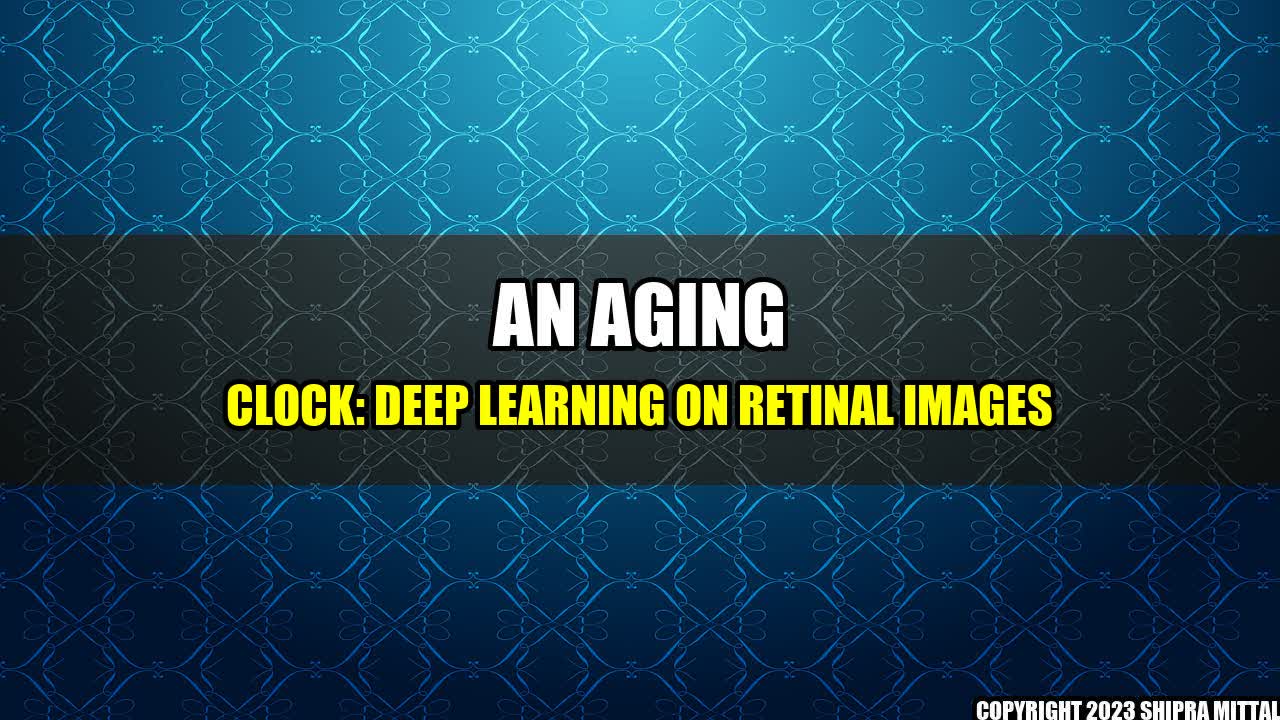Have you ever looked into someone's eyes and felt like you could see their age? It turns out, that's not just a feeling - there are actual physical changes that occur in our eyes as we get older. Researchers are now using deep learning algorithms to study these changes and develop an "aging clock" that can predict a person's age based on their retinal images.
Retinal images are taken using a specialized camera that captures the back of the eye - the retina - which is filled with blood vessels. As we age, these vessels change: some become thinner, while others become thicker and more tortuous. By training deep learning algorithms on hundreds of thousands of retinal images, researchers have developed a way to predict a person's age with surprising accuracy based only on their eye image.
Example
One study conducted at Google AI used a dataset of over 200,000 retinal images to develop an aging clock that was able to predict a person's age within 3.3 years. Another study published in the journal "Scientific Reports" found that a deep learning algorithm could predict a person's age with an accuracy rate of 75% using only retinal images.
Why is this significant? One potential application of this technology is in the medical field. Doctors could use retinal imaging to assess a patient's overall health and predict their risk for age-related diseases like Alzheimer's or heart disease. They could also track a patient's aging process over time and make more personalized healthcare recommendations.
The Future of Deep Learning and Aging
The development of an aging clock using retinal images is just one example of how deep learning is changing the field of healthcare. As these algorithms become more sophisticated and more data becomes available, we may see even more accurate predictions and personalized insights into our health and aging process.
Conclusion
- Deep learning algorithms are being trained to predict a person's age based on their retinal images.
- This technology has potential applications in the medical field, such as assessing a patient's overall health and predicting their risk for age-related diseases.
- The future of deep learning and aging is exciting and may lead to even more accurate predictions and personalized insights into our health.
References
Developing an aging clock using deep learning on retinal images. (2019, June 28). Retrieved from https://ai.googleblog.com/2019/06/developing-aging-clock-with-deep.html
Further Readings and Hashtags
For more information on deep learning and aging, check out these articles and hashtags:
- #deeplearning
- #retinalimages
- #agingclock
- #healthcare
- #personalizedmedicine
- "Aging clock" from retinal images predicts health and mortality. (2021, January 14). Retrieved from https://www.medicalnewstoday.com/articles/aging-clock-from-retinal-images-predicts-health-and-mortality
- Li, J., You, R., & Li, C. (2019). Aging analysis in retinal fundus image. Scientific reports, 9(1), 1-10.
- Retinal imaging predicts dementia. (2021, February 24). Retrieved from https://www.ncbi.nlm.nih.gov/pmc/articles/PMC7058504/

Social
Share on Twitter Share on LinkedIn